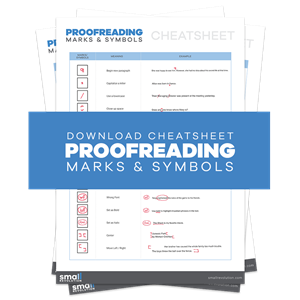Does staring at a blank page overwhelm you more than you’d like to admit?
You are not alone.
Writing is 90 percent procrastination: reading magazines, eating cereal out of the box watching infomercials. It’s a matter of doing everything you can to avoid writing, until it is about four in the morning and you reach the point where you have to write.” — Paul Rudnick
Perhaps all you’ve written resembles the ramblings of a madman and now you have to burn the midnight oil on editing.
There’s more to writing than stringing together some clever words into a sentence. As a writer you need to be imaginative, a people-person, and a story-teller. You need to understand the art of Copywriting.
Are the articles on how to become a better writer not getting you anywhere?

There’s no point in telling you not to worry. It’s the brain’s reflex after all.
Except…
Writers are wired differently. We cannot exist on Eureka moments alone!
We carry within us a linked chain of ideas to help formulate our stories.
Ever Considered Copywriting as a Career?
Copywriting doesn’t require you to be an exceptional writer; it only needs you to be a smart one. The ability to work from home and the flexibility of your working days is convenient. Imagine working in your pajamas all day?
There are two career moves when it comes to copywriting. You can go the conventional way of an 9-5 workday in an office setting with an outlet such as a magazine or newspaper. Or strike out on your own as a freelance copywriter. These are two very different paths.
There are no formal qualifications needed to become a copywriter. It really comes down to how much you are willing to learn and earn; our copywriter salary guide says it all.
The best thing about adding copywriting to your skillset is that you can grow in the process. The world of copywriting nudges you into writing more frequently, eventually making it a habit.
Creativity is also part of the process as copywriting encourages you to look at problems from a solution-oriented perspective first. You learn to be innovative in the face of your challenges.
A shortcut to copywriting is knowing how to connect with your audience.
How to Improve Your Writing
Improving your writing is about your innate desire to become even better than you already are. There are many great works of art across the world that are often driven by a passion for something. Writing is no exception.
1. Think About the Theme of Your Writing
Do not forget to add a personal touch to whatever you write, this allows you to connect well with your readers and also presents a slightly personal tone that is friendly and human. Consider that:
- It is easy to get tied up in work. Learn to take note of your surroundings and write in detail a paragraph for each sense. This is a fun way to constantly try and build up your creativity and can generate ideas.
- Take this same approach when you first meet or notice a person (no need to pull out your notepad and stare intently at them). Try to memorize anything that strikes you, this will help you learn to pay attention to detail.
- At the end of the day ask yourself, ‘Is there another way this could be written?’, ‘can this idea work?’, ‘in whose point of view does this story fit?’. This can help you look at your project in a whole new light and highlights its flaws or strengths.
2. Write from Your Emotions
Have you ever been told ‘What you want isn’t always what you need?’ To become a better writer you need to accept that sometimes your brain needs a breather! It’s your brain that needs to decode all you are experiencing; too much and it can be overwhelmed. So:
- What do you do with your negative emotions? They often hit when least expected and leave you stunned. Learning to accept emotions as natural human processes and how they all add to your growth as a person can really clear your mind and help you perceive your surroundings more clearly.
- When you’re lethargic and the idea of writing is exhausting, take a step away from what you’re working on. Reconsider the content you’re writing and ask yourself why you have a lack of enthusiasm.
- Shakespeare said, “tragedy is comedy misunderstood”. If you can learn to laugh at yourself or find the irony in discomfort, you allow feelings to flow through you. You can then channel your feelings into your craft and let it flow.
Remember: Only you can feel it the way you feel it.” — Anon
3. Be Disciplined
Yes, it’s a cliche, but it’s true. There are too many things battling it out for your time and attention. You need to remember why you started writing in the first place to avoid getting distracted.
- Writer’s block is possibly one of the worst experiences for a writer. When it comes to discipline, you’re often instructed to write every day, as a way to hone your skills. If you don’t feel like writing you can try and read instead; a random article that has no relation to you may help to jog your mind. Then go write!
- Take a step back and look a the whole project. When you feel lost, going back to the first draft of the document can give insight into what the main focus of the project was about, before it spiraled out of control.
- Learning ways recentre yourself when you start spiriling can help you stay focused and remain on time for deadlines. Be unconventional with your writing, write anywhere in your attempt to discover what works best for you. Carry a notepad to the bathroom, write a haiku. Write!
4. Take Time to Think
Taking a step back allows you to review the project from a holistic point of view. You can ask yourself if you have truly asked all the questions there are to ask from the reader’s perspective, even the really ‘huh?’ ones.
- Try using copywriting prompts on genres you are not familiar with to improve your versatility; this also expands your skillset.
- Opinions are loud and often misplaced. They hit you from every angle. It’s important to note that your individuality doesn’t shadow the facts of a subject. It keeps you innovative as you take time to be reminded of your innate creative self during this time of reflection!
- Revisit your creative side! Renowned minds, such as Bill Gates, have a personal seven-day retreat as a way to ponder the future of technology and innovative ideas. The seven days include reading, thinking, and alone time. He is completely disconnected from family members, friends, and employees (despite one exception: a caretaker who slips him two simple meals a day).
Always keep trying to find ways to improve yourself. Just as you found yourself directed to this site – good job!
You already know the basics of how to become a better writer: good grammar, thorough proofreading, purposeful syntax… the list goes on.
The above tips are a guideline meant to work alongside the technical approach you apply to copywriting.
Nonetheless, don’t fail to keep up-to-date with technological applications that can make writing easier for you such as search engine optimization (SEO) copywriting courses.
From this course you can combine your current writing skills and the vast information you acquire from the course to become a proficient individual; well versed in a wide range of abilities.
What’s the catch?
There isn’t one.
The course is designed to help you develop the technical and behavioral skills to give you versatility in securing a reliable career as a copywriter, skilled in writing for the web reader.
What Do You Gain From Becoming a Better Writer?
- Improved skills equal high-quality output
Excellent skills market themselves. High quality content attracts more traffic and clients your way.
- Earn more
Everyone is thinking up ways to make a few bucks. The better your writing, the more you can get paid for it; you can produce consistently high-quality content for your audience.
- Save time and money
Being a better writer involves better planning and execution of tasks without wasting time. This means you can work less for more money. Small Revolution is filled with insanely useful blog posts to help you succeed in your online career as a Copywriter. Check it out today.
Photo by Yanalya


